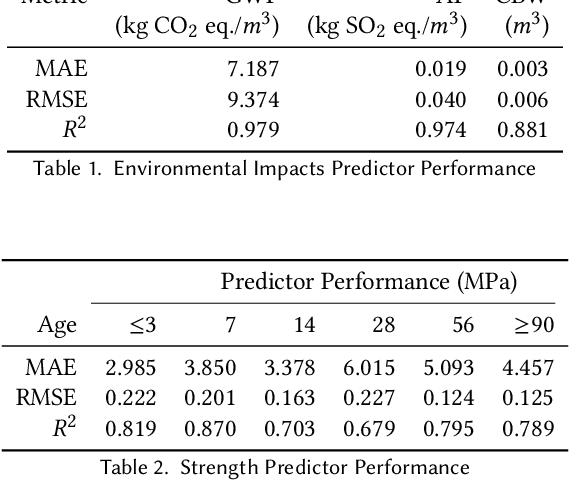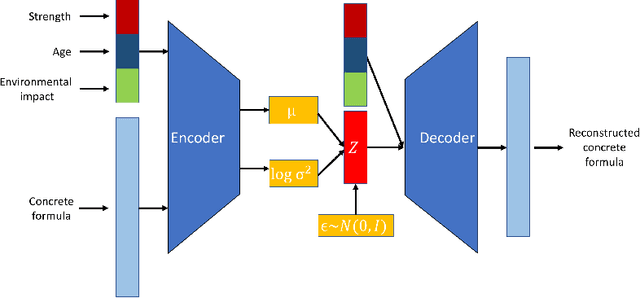Nishant Garg
Sustainable Concrete via Bayesian Optimization
Oct 30, 2023Abstract:Eight percent of global carbon dioxide emissions can be attributed to the production of cement, the main component of concrete, which is also the dominant source of CO2 emissions in the construction of data centers. The discovery of lower-carbon concrete formulae is therefore of high significance for sustainability. However, experimenting with new concrete formulae is time consuming and labor intensive, as one usually has to wait to record the concrete's 28-day compressive strength, a quantity whose measurement can by its definition not be accelerated. This provides an opportunity for experimental design methodology like Bayesian Optimization (BO) to accelerate the search for strong and sustainable concrete formulae. Herein, we 1) propose modeling steps that make concrete strength amenable to be predicted accurately by a Gaussian process model with relatively few measurements, 2) formulate the search for sustainable concrete as a multi-objective optimization problem, and 3) leverage the proposed model to carry out multi-objective BO with real-world strength measurements of the algorithmically proposed mixes. Our experimental results show improved trade-offs between the mixtures' global warming potential (GWP) and their associated compressive strengths, compared to mixes based on current industry practices. Our methods are open-sourced at github.com/facebookresearch/SustainableConcrete.
Accelerated Design and Deployment of Low-Carbon Concrete for Data Centers
Apr 11, 2022



Abstract:Concrete is the most widely used engineered material in the world with more than 10 billion tons produced annually. Unfortunately, with that scale comes a significant burden in terms of energy, water, and release of greenhouse gases and other pollutants; indeed 8% of worldwide carbon emissions are attributed to the production of cement, a key ingredient in concrete. As such, there is interest in creating concrete formulas that minimize this environmental burden, while satisfying engineering performance requirements including compressive strength. Specifically for computing, concrete is a major ingredient in the construction of data centers. In this work, we use conditional variational autoencoders (CVAEs), a type of semi-supervised generative artificial intelligence (AI) model, to discover concrete formulas with desired properties. Our model is trained just using a small open dataset from the UCI Machine Learning Repository joined with environmental impact data from standard lifecycle analysis. Computational predictions demonstrate CVAEs can design concrete formulas with much lower carbon requirements than existing formulations while meeting design requirements. Next we report laboratory-based compressive strength experiments for five AI-generated formulations, which demonstrate that the formulations exceed design requirements. The resulting formulations were then used by Ozinga Ready Mix -- a concrete supplier -- to generate field-ready concrete formulations, based on local conditions and their expertise in concrete design. Finally, we report on how these formulations were used in the construction of buildings and structures in a Meta data center in DeKalb, IL, USA. Results from field experiments as part of this real-world deployment corroborate the efficacy of AI-generated low-carbon concrete mixes.
 Add to Chrome
Add to Chrome Add to Firefox
Add to Firefox Add to Edge
Add to Edge